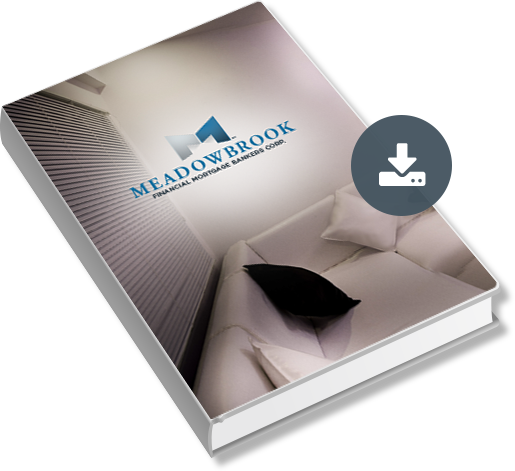Search Blog Posts by Blog Topic
How You Can Reduce Home Loan Expenses
February 1, 2025
When you take a home loan, you end up repaying significantly more than you borrow. This is because the loan attracts a tidy sum as interest, as well as fees in different forms. The amount you borrow, the loan term, and the interest rate have a direct bearing on your monthly repayments. If you, as a probable or existing homeowner, wish to reduce your home loan expenses, you may do so in different ways. Here, you’ll find answers to questions like, “How can you decrease the real cost of a loan?” and “How to lower mortgage payment?”
New Home Owners
If you wish to keep mortgage expenses low, you must compare multiple mortgage providers. While selecting the right mortgage lender requires that you pay close attention to interest rates and fees, you also need to consider aspects such as flexibility in terms and customer service. There are other ways in which new homeowners may decrease the cost of a loan.
Select a Suitable Loan Term
This aspect works in two ways. If you wish to reduce monthly payments, consider opting for a longer loan term. However, while this reduces the amount you need to pay each month, you end up paying more through the course of the loan in the form of added interest.
If you, on the other hand, wish to lower the overall cost of your loan, selecting a shorter loan term may work better for you. This way, while you end up paying less in interest, you need to make higher monthly repayments.
Looking to Purchase a Home on Long IslandContact Us
Make a Big Down Payment
Some people might qualify for a home loan without making a down payment, or by paying less than the usually required 20%. However, consider paying as much as you can if you wish to decrease the real cost of a loan. Making more than a 20% down payment comes with the following benefits:
- Less interest to pay through the course of the loan.
- Reduced upfront fees.
- Lower monthly repayments.
- No need to pay for private mortgage insurance (PMI).
- Possibility of getting a more competitive interest rate.
Get an Interest-Only Mortgage
If you’re wondering how to lower monthly mortgage payments when buying a house during the early years of a loan, getting an interest-only mortgage might work well for you. A typical interest-only mortgage is broken down into two phases. In the first stage, you make payments only toward the interest of the loan, and this helps keep your initial repayments low. In the second stage, you make repayments toward the principal and the interest. Keep in mind that these mortgages offer no more than temporary respite. In the second phase, you will be burdened with a higher-than-usual repayment.
 Lower Your Closing Costs
Lower Your Closing Costs
The money you end up paying toward closing costs can be significant, which is why it’s fair to wonder how to reduce closing costs for buyers. In most cases, closing costs account for around 3% to 6% of the loan amount. So, if you borrow $300,000, you may pay $9,000 to $18,000 as closing costs. If you pay attention to the process, you may take measures to reduce the closing costs.
- Compare loan estimates. Compare loan estimates provided by different lenders because these give you a good indication of how much they charge as closing costs in the form of various fees. Make sure you get legally binding loan estimates, and not just closing costs or fee itemization worksheets.
- Identify probable savings. If the service is one that you’re allowed to shop for, choose the service provider that works best for you and that may help reduce fees. The types of services that you may be able to shop for include title search, title insurance, settlement services, pest inspection, and surveys. Comparing service providers across these realms may lead to savings. If you plan to compare title and settlement service providers, remember that they usually require adequate time to carry out research and prepare documents.
- Pay close attention to fees. Some lenders charge separate fees for services such as loan origination and underwriting, and other lenders may combine these types of charges under a single fee. This is normal. However, if you come across any fees on the Loan Estimate that you do not understand, you have reason enough to be wary. If you’re unsure, do not hesitate to ask the lender why it is charging the particular fee.
- Get the seller to contribute. If the market is not favorable for sellers, you might be able to convince a seller to contribute toward closing costs. However, this might not happen when inventories are low, and there is stiff competition between buyers.
- Finance your closing costs. If you don’t have enough money to cover closing costs, you might consider financing the closing costs into the loan amount. This may help if you plan to get a mortgage to buy a new home, and even if you wish to refinance your existing mortgage. In this case, you don’t need to pay the closing costs when you get the loan. Instead, the amount you need to pay as closing costs is added to the principal amount. In some instances, closing costs are replaced with a higher interest rate on the loan.
- Negotiate. There is often room for negotiation when it comes to closing costs, especially if you take the time to understand all the fees and discuss them with your lender. Comparing multiple offerings from various lenders puts you in a better position at the negotiating table. Also, some lenders are known to provide incentives for home loans to existing customers. These may come in the form of discounted fees or more competitive interest rates.
Existing Home Owners
Existing homeowners who wish to make their mortgages more affordable or reduce mortgage repayments may use a different way to get the results they seek.
Think Forbearance
If you’re having trouble making your monthly payments on time, consider applying for mortgage forbearance. If your lender or loan servicer approves your application, you delay making your monthly payments or make lower payments for a predetermined time. Keep in mind that forbearance only provides temporary relief and interest continues to accrue on the amount you owe. Also, once the forbearance period is complete, you will need to start making payments.
You may qualify for mortgage forbearance in instances that include major illnesses, natural calamities, or loss of employment. Whether or not the forbearance is reported on your credit report depends on the terms and conditions laid down by your lender and/or applicable laws and regulations. If you’re facing financial hardship, consider applying for forbearance before you miss a payment.
Looking to Purchase a Home on Long IslandContact Us
Refinance
Refinancing your home loan can lower the cost of your loan in two different ways.
- Extending loan term to reduce monthly payments. If you wish to refinance your home loan to lower your monthly repayments, consider opting for a longer loan term. For instance, if you have a 15-year mortgage, refinancing to a 30-year loan will result in a significant drop in monthly payments. If you have an existing 30-year mortgage and have paid it off for a few years, refinancing to another 30-year loan may also have a similar effect. However, this will mean that you end up paying more interest in the long term.
- Reducing term of mortgage to decrease interest. If you’re looking at long-term savings, refinancing into a reduced loan term might be the way to go. While this results in lesser interest accruing through the course of the loan, you will need to make higher monthly repayments.
Make Extra Repayments
This might work well for you if you’re wondering how to lower your mortgage payments without refinancing, provided you have adequate funds. In most scenarios, you are well within your rights to make an extra payment toward your home loan at any time during the year.
When you make extra payments, you need to specify that the money is to be applied toward the principal. Remember that the extra payment does not automatically go toward the principal. In the absence of your specific instructions, your extra payments will go towards the next regular principal and interest payment and may not pay off the loan as quickly.
You may choose to make a lump sum payment at any time, you may make larger than required monthly payments, or you may simply make one extra payment each year. At existing rates, making one extra payment each year toward a 30-year mortgage can reduce the loan term by around four years. In addition, you would also save a tidy sum as interest you don’t have to pay. So, the answer to, “Can I lower my mortgage payment by paying down the principal?” is in the affirmative.
If you have less than 20% equity in your home, making extra repayments can help you get to the 20% mark faster. By doing this, and depending on the type of loan you have, you may no longer have to pay for mortgage insurance. For instance, FHA loans have mortgage insurance for the life of the loan. However, you can drop the mortgage insurance on an FHA loan if you refinance into a conventional loan, where private mortgage insurance can be canceled after you build 20% equity.
Switch From Monthly to Bi-Weekly
Several lenders give borrowers the ability to choose between making monthly and bi-weekly payments. Opting for the latter gives you an easy way to repay your mortgage faster. This, in turn, results in lesser interest that you need to pay through the course of the loan.
How this works is simple. When you make monthly payments, you end up making 12 payments in a year. When you switch to bi-weekly payments, you essentially make half a payment every two weeks. This amounts to 26 “half payments” in a year, or 13 complete payments in all. What you do when you switch from monthly to bi-weekly payments is add an extra payment each year.
 Work on Cancelling Your PMI
Work on Cancelling Your PMI
If you have a zero or low down payment loan, or if you’ve paid less than 20% toward the down payment of your home, you keep paying for private mortgage insurance (PMI) until you build at least 20% equity in your home. Keep in mind, though, that the mortgage insurance might remain in place for longer depending on the type of loan you have, with FHA loans being a prime example. As a result, the first step is to contact your lender and determine if you still need to keep paying for mortgage insurance.
If you have a conventional loan, you need to build at least 20% equity in your home and only then can you ask your loan servicer to cancel the mortgage insurance. With a conventional mortgage, once the loan-to-value (LTV) ratio drops to 78% of your home’s original appraised value, PMI cancels automatically. The PMI also cancels if a new home appraisal puts your LTV ratio below 78%.
Consider a Loan Modification
If you feel you might fall behind in keeping up with your regular mortgage payments, think about asking your lender if you qualify for a loan modification. You may also think about requesting a loan modification if you do not qualify for a refinance loan.
If your lender approves your application, you may be able to modify certain terms surrounding aspects such as monthly repayment amount, loan term, and even interest rate. More often than not, a loan modification results in a lower monthly repayment.
Loan modification might involve changing the type of your loan from a fixed-rate mortgage to an adjustable-rate mortgage (ARM), or vice versa. It may result in an extension of the loan term, a temporary or permanent reduction in interest rate, or bundling all past due amounts and the principal, to be amortized over a new loan term.
The benefits of opting for a loan modification program include lowering monthly payments, resolving a delinquency status, and avoiding foreclosure.
Look At the Property Tax You Pay
Take a close look at how much you pay as property tax. According to statistics released by the National Taxpayers Union, around 30% to 60% of all property in the U.S. is over-assessed. Simply put, this leads to inflated property tax bills. Unfortunately, less than 5% of taxpayers think about challenging their assessments. Incidentally, many people who do tend to get partial refunds.
If you feel your property might be over-assessed, you need to file a formal appeal to dispute this. The process varies from one state to another, and in some cases, even from county to county. While you might be able to file your appeal online in some states, others may require that you appear physically in court. In case you think that the discrepancy is huge, it might be worth your while to seek professional legal assistance.
Looking to Purchase a Home on Long IslandContact Us
Conclusion
Whether you need a loan to purchase a home or already have an existing home loan, there are steps you may take to reduce your financial burden. However, what you need to determine ahead of time is if you are looking for short-term relief or long-term gains. This is because lowering your monthly payments usually translates into a more expensive loan.
If you need a new home loan or are thinking about refinancing an existing loan, contact a reliable mortgage provider to check if you might be able to reduce your home loan expenses in the process.
DISCLAIMER:
30-YEAR FIXED-RATE MORTGAGE: THE PAYMENT ON A $200,000 30-YEAR FIXED-RATE LOAN AT 3.875% AND 80%LOAN-TO-VALUE (LTV) IS $940.14 WITH 0 % POINTS DUE AT CLOSING. THE ANNUAL PERCENTAGE RATE (APR) IS 4.026%. PAYMENT DOES NOT INCLUDE TAXES AND INSURANCE PREMIUMS. THE ACTUAL PAYMENT AMOUNT WILL BE GREATER. SOME STATE AND COUNTY MAXIMUM LOAN AMOUNT RESTRICTIONS MAY APPLY.
Ready To Get Started?
Fill out the form below and a mortgage professional will get back to you shortly.

First Time Homebuyer’s Guide
Considering homeownership but not sure where to begin? The Meadowbrook Financial Mortgage Bankers Corp. guide to home buying will make the process easy all in one packet.
Recent Articles

An In-Depth Condo Buying Guide
2 July, 2025One reason why many first-time homebuyers prefer condos over single-family homes is that they are typically more affordable and give them the means to start…

Should You Buy an Under-Construction, New Build, or…
18 June, 2025The dream of owning a home often comes with having to make an array of decisions, and perhaps none is more crucial than choosing the…

How Do Pets Influence Homebuying?
1 May, 2025Adding a furry friend to your family can bring so much joy to your life. Whether it’s a dog, cat, bunny, or other, they’re sure…


